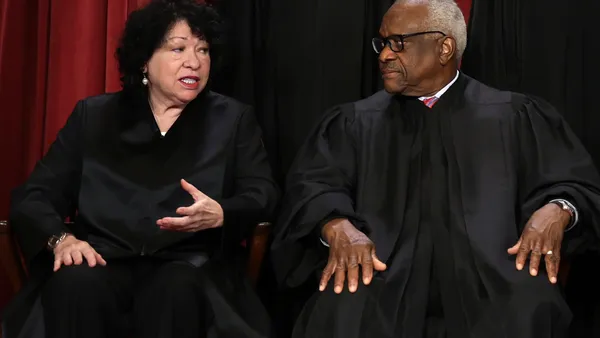Dive Brief:
- Arizona is now the first U.S. state to automatically recognize out-of-state occupational licenses, thanks to a new law signed by Gov. Doug Ducey on Apr. 10. Under H.B. 2569, the state will grant licenses in the same discipline and at the same practice level as those issued in another state to any person who has established residence in Arizona.
- The bill extends a protection that had already been extended to spouses of military personnel deployed in Arizona, Ducey's office said in a statement. The law stipulates out-of-state licenses and certifications must be in good standing in all states in which the applicant holds the certification, and new residents must have held the license for at least one year.
- The state's licensing boards can require tests for some licenses but only for information specific to Arizona law, the Associated Press reports. The law applies "almost universally" to several licensed professions including construction, real estate and funeral embalming, according to AP, but not to certain excepted occupations including lawyers, security guards and private investigators.
Dive Insight:
Arizona's law follows similar moves by other states, cities, localities and entities to attract out-of-state talent, but also places an emphasis on the transition those workers make in moving to a new area. According to a recent poll of U.S. workers by Robert Half, 62% of workers would consider relocating for a new position.
Streamlining of licensing requirements has been a priority at the federal level as well. The U.S. Department of Labor announced in 2018 the availability of $7.5 million in grants to eliminate or streamline occupational licensing requirements, with the goal of increasing portability.
Employers are increasingly looking for ways to upskill current staff and otherwise get ahead of talent shortages affecting the communities in which they operate. Credentialing is part of that work, and 94% of chief financial officers in a separate Robert Half report said their organizations pay for some or all of the costs of employees' professional certifications.












